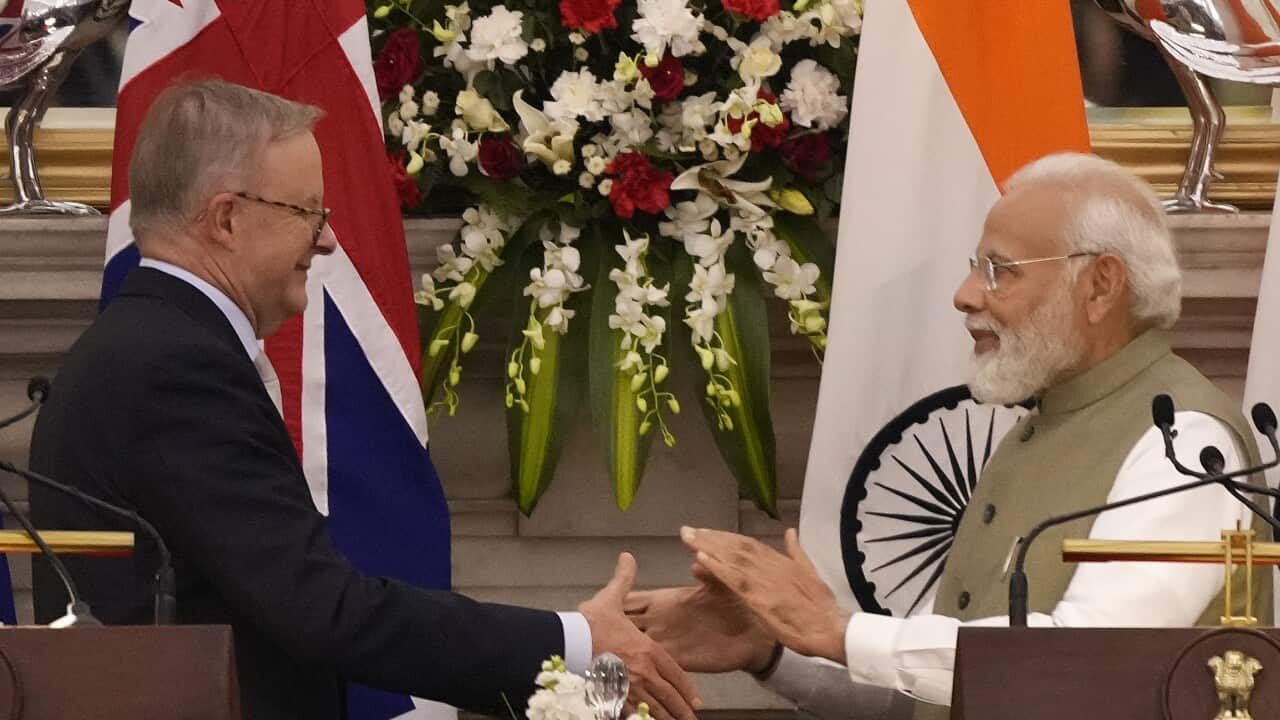International student, Navsheen Kachroo, said he was concerned about recent immigration rule changes after lodging a visa application for his younger brother in India.
"We've just filed my brother's student visa (application) and are currently awaiting approval. But I'm a bit concerned as the rules have changed again and now there is a cap announced by the government," he said.

Navsheen Kachroo is currently based in Adelaide pursuing a Master of International Hospitality Management. Credit: Supplied: Navsheen Kachroo
Nonetheless, Navsheen said he remained hopeful that the recent regulations wouldn't impact his brother's application to an Adelaide-based university this year, yet he acknowledged a lingering sense of uncertainty.
"You never know what is lying ahead. What will change and how new visa rules will affect temporary migrants like us in future ... There is so much uncertainty all the time about the future."
Vishal Kotari, an international student based in Sydney, echoed Navsheen's concerns.

Vishal Kotari, an international student based in Sydney, Credit: Supplied: Vishal Kotari
Current strategy and tougher visa rules
The government has just unveiled a series of actions aimed at reducing migration levels, one of which includes implementing restrictions on the enrolment of international students.
"If universities want to take more international students, they must build more student accommodation," Treasurer Jim Chalmers said while presenting the 2024 Federal Budget on Tuesday.

Australian Treasurer Jim Chalmers, says universities must provide adequate housing to cater for student numbers. Source: AAP / LUKAS COCH/AAPIMAGE
The permanent migration program, meanwhile, has been reduced by 5000 places to 185,000 for 2024-25, with an "ongoing focus on skilled migration".
For Indian nationals, the government will implement a new Mobility Arrangement for Talented Early-professionals Scheme (MATES) program from 1 November which will allow 3,000 graduates and young professionals under the age of 30 to work in Australia for a period of two years.
The government will introduce a visa pre-application (ballot) process for the capped Work and Holiday (subclass 462) visa program for China, Vietnam and India from 2024–25.
As of 10 May this year, international students will have to show higher savings amounts in order to get a student visa.
"This was increased from $21,041 to $24,505 on 1 October last year to account for indexation since it was frozen in 2019 and will now further increase to $29,710," the Department of Home Affairs said in a statement.
This is the second time the Australian government has increased the requirement to acquire student visas in the past seven months.

Source: SBS
also now apply to all Student Visa and Temporary Graduate Visa applications.
The maximum eligible age for Temporary Graduate visa applicants will also be the length of post-study work visas .
'Rapid policy change affects well-being'
Over the past decade, the number of international students in Australia has risen significantly.
In the year-to-date to February 2024, there were 703,245 enrolments by international students, compared with 578,930 in the same period of 2019.
Over 17 per cent of the total number of international students were from India, followed by Nepal (eight per cent), The Philippines (five per cent) and Vietnam (five per cent).
The surge in student population amid Australia's housing market strain has also been widely discussed.
Professor Gigi Foster of UNSW Economics said the cohort faced a set of unique challenges while studying in the country.

Professor Gigi Foster of UNSW Economics Credit: Supplied : Professor Gigi Foster
She asserted that there hadn't been any concrete studies conducted so far to substantiate an increased need for mental health assistance among international students.
"It's imperative for the government to assign this responsibility to universities. Additionally, there must be a more effective communication channel for the cohort."
Foster said she supported the Treasurer's call for universities to expand accommodation, but highlighted the need to prioritise student mental health.
"The rapid policy changes can affect their emotional well-being. Future budgets should ask universities to support this cohort and enhance their overall experience," she said.
Weihong Liang, President of Sydney University Postgraduate Representative Association (SUPRA), said "Evaluating the link between these policy changes and mental health is challenging but it can heighten students' sense of uncertainty, impacting their emotional well-being."

Weihong Liang, President of Sydney University Postgraduate Representative Association (SUPRA) Credit: Supplied by Weihong Liang
Suman Dua, a registered migration agent, noted that despite many positive indicators in the Budget, recent announcements had made the future challenging for international students.
"There have been numerous changes recently, and it appears that obtaining a student visa will be difficult in near future. Currently, there is a lot of panic among many prospective students," she said.







